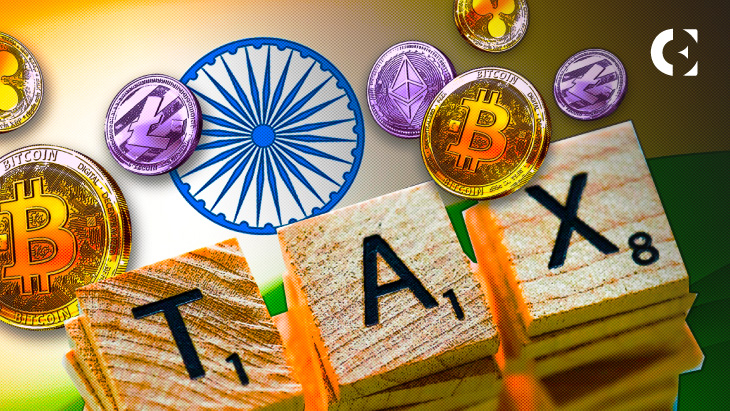- Indian CBDT Chairperson Nitin Gupta shared that the government has garnered more than ₹700 crore in tax revenue from crypto trading.
- Back in August, a network linked with Parimatch was exposed for evading tax by converting earnings to crypto.
- India has a 30% tax in place on the transfer of virtual digital assets, yet it holds the second-largest crypto market in the world.
According to a prominent news outlet in India, Central Board of Direct Taxes (CBDT) Chairperson Nitin Gupta announced that the government has collected over ₹700 crores in tax revenue during the current fiscal year, following the implementation of a novel TDS system for online gaming and crypto trading. During a conversation with the media, Gupta confirmed that:
We have collected Rs 600 crore from online gaming companies in the first six months.
Meanwhile, approximately ₹105 crore was collected through TDS during the 2023-24 fiscal year, subsequent to the initiation of crypto taxation on April 1, 2022, reported Gupta.
The Finance Act 2023 introduced a new section, 194BA, into the Income-Tax Act of 1961 on April 1 in response to the Income Tax Department’s discovery that a significant number of companies were evading taxes on their earnings from online gaming enterprises. As a result, online gaming companies were obligated to apply TDS (Tax Deducted at Source) on all winnings exceeding Rs 100 from online games.
These tax laws have helped curb incidents of tax evasion by converting it into crypto. According to a report from The Times of India back in August, Parimatch, a Cyprus-based group that engages in advertising during local sports leagues on television, was one of the biggest organizations under investigation for this fraud. The Directorate General of Goods & Services Tax Intelligence (DGGI) in Mumbai exposed a network connected to Parimatch, responsible for accumulating and transferring significant money.
Additionally, in India’s Union Budget for the year 2022, the government formally designated digital assets, which encompass crypto assets, as “Virtual Digital Assets.” Thereafter, income derived from the transfer of virtual digital assets, including crypto and NFTs, was subject to a 30% tax rate.
While India has introduced a number of tax laws for the crypto sector over the last few months, it remains the second-largest crypto market globally, as per a report from New York-based blockchain analysis firm Chainalysis. The report highlighted that the Central and Southern Asia and Oceania (CSAO) region hosts one of the most dynamic crypto markets in the world.
Disclaimer: The information presented in this article is for informational and educational purposes only. The article does not constitute financial advice or advice of any kind. Coin Edition is not responsible for any losses incurred as a result of the utilization of content, products, or services mentioned. Readers are advised to exercise caution before taking any action related to the company.







